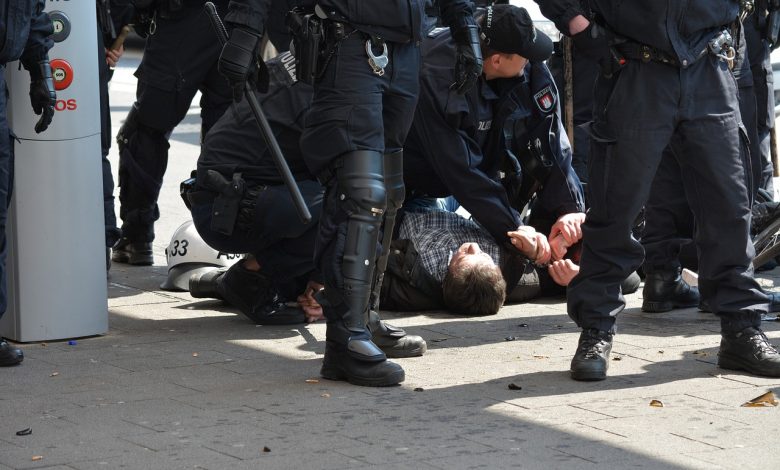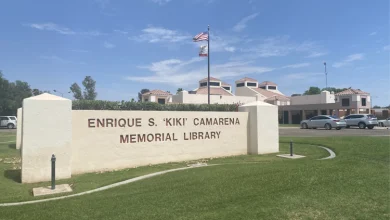How to Know if Police Are Investigating You for Drugs

The issue of illicit drug trafficking and drug abuse is a complex and pervasive problem that affects societies worldwide. This global challenge has significant social, economic, and health implications. From the production and distribution of illicit drugs to their consequences on individuals and communities, this problem continues to escalate.
The illicit drug trade has grown into a highly profitable and expansive global industry. Drug cartels and criminal organizations operate across borders, trafficking drugs like cocaine, heroin, methamphetamine, and synthetic opioids to meet a growing demand.
Criminal networks have also adapted to advancements in technology, making it increasingly difficult for law enforcement agencies to track and intercept drug shipments. The dark web and encrypted communication channels have provided new platforms for drug transactions. The immense profits generated by the drug trade often lead to corruption within governments and financial institutions. Money laundering facilitates the integration of illegal proceeds into the legal economy, making it challenging to trace and seize illicit assets.
If you’ve ever had concerns about the possibility of a police investigation into your involvement with drugs, it’s important to be aware of the signs and red flags that may indicate such scrutiny. While we do not condone or encourage any illegal activities, understanding the signs of a potential drug investigation can help you make informed decisions and seek appropriate legal counsel. In this article, we will discuss several common indicators that police may be investigating you for drug-related activities.
Increased Surveillance
One of the most apparent signs that you might be under investigation for drug-related offenses is heightened police surveillance. This can manifest in various ways, such as unmarked police cars frequently parked near your residence, individuals observing your activities, or an increased police presence in your neighborhood.
Frequent Traffic Stops
If you find yourself being pulled over more frequently for minor traffic violations, this could be a red flag. Police might be using these stops as opportunities to gather information about your activities and potentially search your vehicle for drugs.
Unusual and Repeated Questioning
If you notice that law enforcement officers, either uniformed or undercover, are repeatedly questioning you or those around you about your drug-related activities, it may indicate that you are under investigation. This can include inquiries about your associates, suppliers, or any knowledge you might have about the local drug trade.
Search Warrants
An executed search warrant is a clear indicator of a drug-related investigation. If your property is searched, it’s crucial to cooperate and not interfere with the process. You should seek legal counsel immediately if a search warrant is served.
Confidential Informants
Law enforcement agencies often use confidential informants to gather information about potential drug offenders. If someone you know becomes an informant or if you suspect that someone may be working with the police, it’s a sign that you could be the target of an investigation.
Increased Financial Scrutiny
An increase in financial scrutiny can be a sign of a drug investigation. This may include audits of your financial transactions, bank accounts, and asset forfeiture proceedings. It is essential to maintain accurate financial records and consult an attorney if you suspect unusual financial inquiries.
Suspicious Online Activity
Law enforcement agencies often monitor online platforms and social media for information related to drug offenses. If you notice unusual online activity, messages, or friend requests from unfamiliar individuals, exercise caution. Avoid discussing or posting content related to illegal activities on social media.
Information from Reliable Sources
If you receive information from reliable sources that suggest you are under investigation for drug-related offenses, take these warnings seriously. Trusted friends or associates may have information about ongoing police inquiries and can help you make informed decisions.
Witnessing Surveillance Equipment
Keep an eye out for unusual equipment, such as hidden cameras or listening devices, near your property. This may indicate that law enforcement is actively monitoring your activities.
How to come clean from illicit drug trafficking
If you are involved in illicit drug trafficking and wish to discontinue these activities and turn your life around, it is essential to take responsible and legal steps to do so. Coming clean from such activities may be challenging, but it is possible. Here is a step-by-step guide on how to disengage from illicit drug trafficking:
- Acknowledge the Problem: The first and most crucial step is recognizing that your involvement in drug trafficking is harmful and illegal. This acknowledgment is essential for personal growth and transformation.
- Seek Legal Advice: Consult an attorney with experience in criminal law, especially if you fear legal consequences. An attorney can provide guidance on how to cooperate with law enforcement, negotiate potential charges, and protect your rights during the process.
- Cut Ties with Criminal Networks: Sever all connections with individuals involved in drug trafficking. Disassociate from drug suppliers, associates, and any criminal organization you have been part of. Reducing contact with these individuals is essential for your safety and compliance with the law.
- Cooperate with Law Enforcement: If you decide to come clean, consider cooperating with law enforcement. Provide any information you have about drug trafficking operations, organizations, or individuals. This cooperation may lead to reduced charges or protection under witness protection programs, depending on the circumstances.
- Ensure Personal Safety: Leaving the drug trafficking world can be risky, as it may involve leaving behind dangerous associates who may not be happy with your decision. Take measures to ensure your personal safety, such as changing your location, securing your residence, and, if necessary, enrolling in witness protection programs.
- Seek Support and Counseling: Coming clean from illicit drug trafficking can be emotionally challenging. Consider seeking the help of a therapist, counselor, or support group to address any psychological and emotional issues that may have arisen from your involvement.
- Rebuild Your Life: Transitioning away from drug trafficking is an opportunity to start anew. Focus on rebuilding your life by pursuing legitimate employment, education, and personal development. This process may require patience and persistence.
- Reconnect with Family and Community: Rebuilding relationships with family and friends may be essential to your recovery. Apologize for any past harm you may have caused and work on mending these relationships.
- Stay Committed to Recovery: Remember that recovery is an ongoing process. Stay committed to your new path and avoid relapsing into old habits. Surround yourself with positive influences and support networks to help you maintain a drug-free life.
- Legal Consequences: If you are facing legal consequences, comply with any court orders, probation, or parole requirements. This may include attending drug treatment programs, regular drug testing, and other conditions set by the court.
- Seek Rehabilitation and Treatment: If you have a history of drug addiction, consider seeking rehabilitation and treatment for substance abuse. A substance abuse treatment program can provide the necessary support to help you maintain sobriety and avoid relapse.
Remember that coming clean from illicit drug trafficking is a challenging process that requires dedication and commitment to leading a lawful and drug-free life. Seek assistance from professionals, legal counsel, and support networks to help you through this transition, and stay focused on your long-term well-being and personal growth.
Conclusion
If you suspect that you are under investigation for drug-related activities, it is essential to remain calm, exercise your legal rights, and consult with an attorney experienced in criminal defense. Remember that cooperating with law enforcement does not necessarily mean incriminating yourself. The best approach is to seek legal advice and follow the guidance of a qualified attorney to protect your rights and interests during an investigation. It is important to remember that drug-related activities are illegal and have serious consequences, and seeking help to address any issues is the best course of action. READ: 300 People Arrested As Police Burst Online Drug Marketplace





